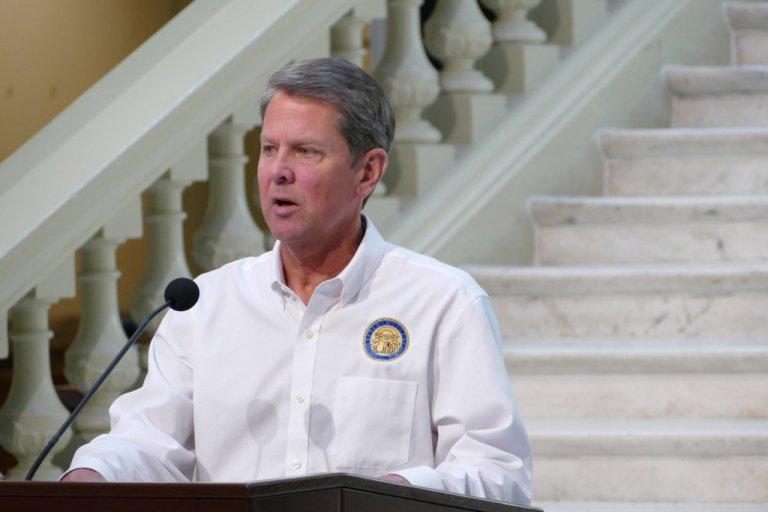
Caption
Gov. Brian Kemp authorized in-person visitation at long-term care facilities “subject to specific criteria and restrictions outlined by the Department of Public Health.”
Credit: John McCosh

Gov. Brian Kemp authorized in-person visitation at long-term care facilities “subject to specific criteria and restrictions outlined by the Department of Public Health.”
More visitors will be allowed into long-term care facilities under new state guidelines issued late Tuesday.
Gov. Brian Kemp authorized in-person visitation “subject to specific criteria and restrictions outlined by the Department of Public Health,” according to a press release. The governor’s order also clarifies that community and state ombudsmen are authorized to perform inspections at these facilities.
The state Department of Public Health’s order outlining a three-phase “reopening” of long-term care facilities continues to limit visitation to “compassionate care” situations when facilities have high rates of new COVID-19 cases and positivity rates or when the local health care system is strained.
But the order allows more leeway for visitors at facilities where 28 days have passed since the last COVID-19 case and when local community transmission rates have declined to a certain level.
The change is significant because people living at nursing homes and other long-term care facilities are considered among the most vulnerable to the novel coronavirus. But residents and their loved ones have now gone seven months with only seeing each other through a windowpane or in the direst of circumstances.
The order notes that “outside visits” – like a parking lot meetup – are still preferred. But guidelines also open the door for a limited visitation policy that matches a facility’s capacity to allow visitors in safely. Visitors who are face mask-averse should steer clear of a long-term care facility, according to the order.
“Visitors unable to pass the screening or comply with infection control practices like masks should refrain from visiting,” the order says.
The governor’s new executive order, which expires on Sept. 30, also extends the ban on gatherings of more than 50 people unless social distancing is possible and continues restrictions for restaurants, bars and other businesses. Local governments can also continue to require face coverings in some limited situations.
The residents of these long-term care facilities and those considered medically fragile remain under the governor’s shelter-in-place order.
This story comes to GPB through a reporting partnership with Georgia Recorder.